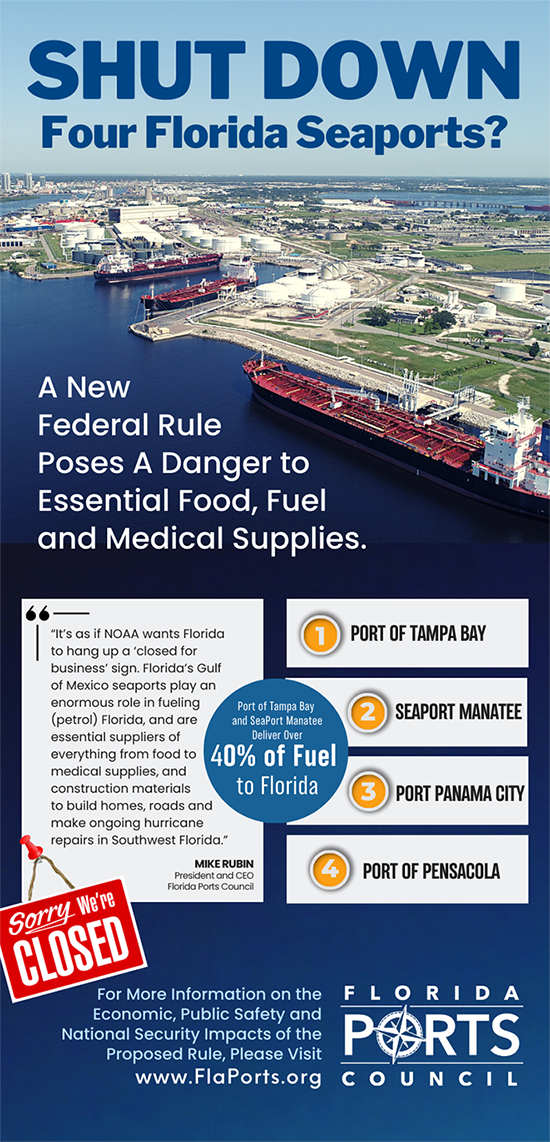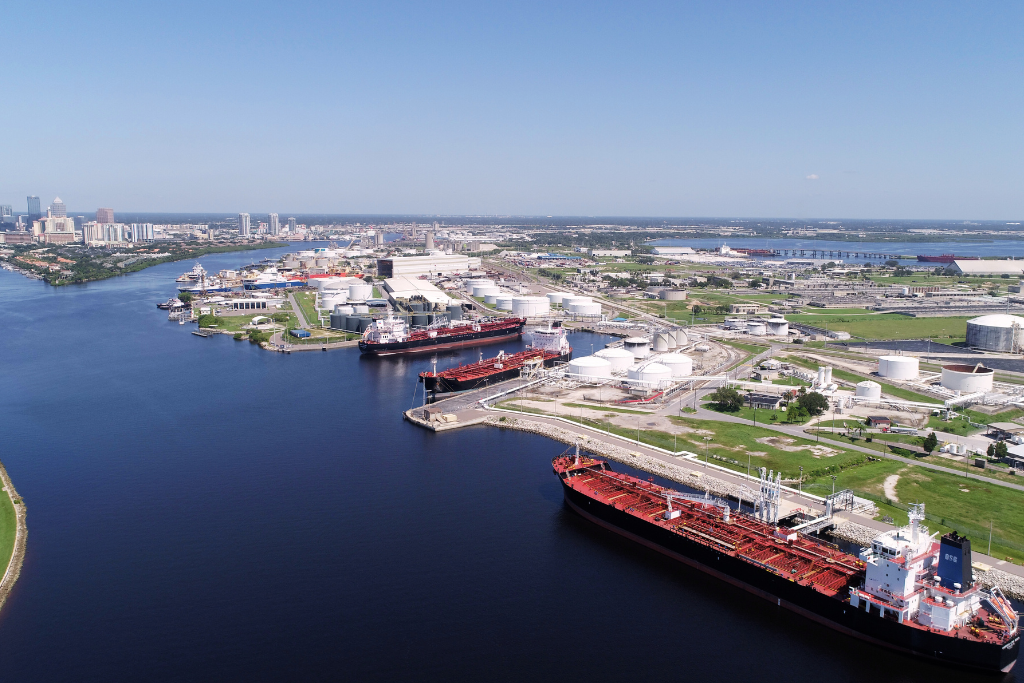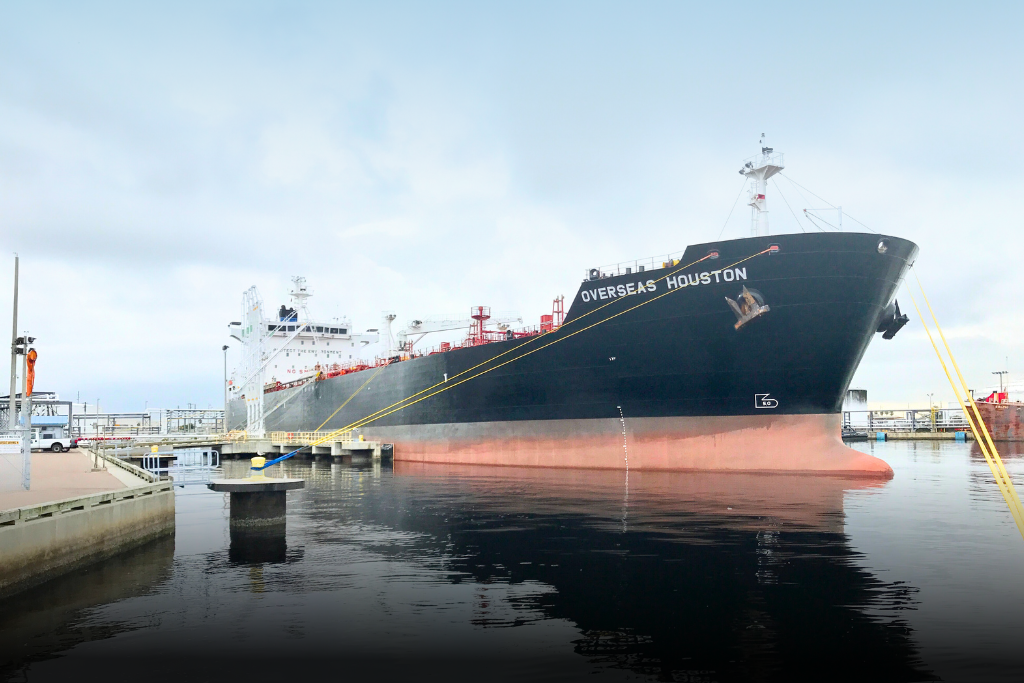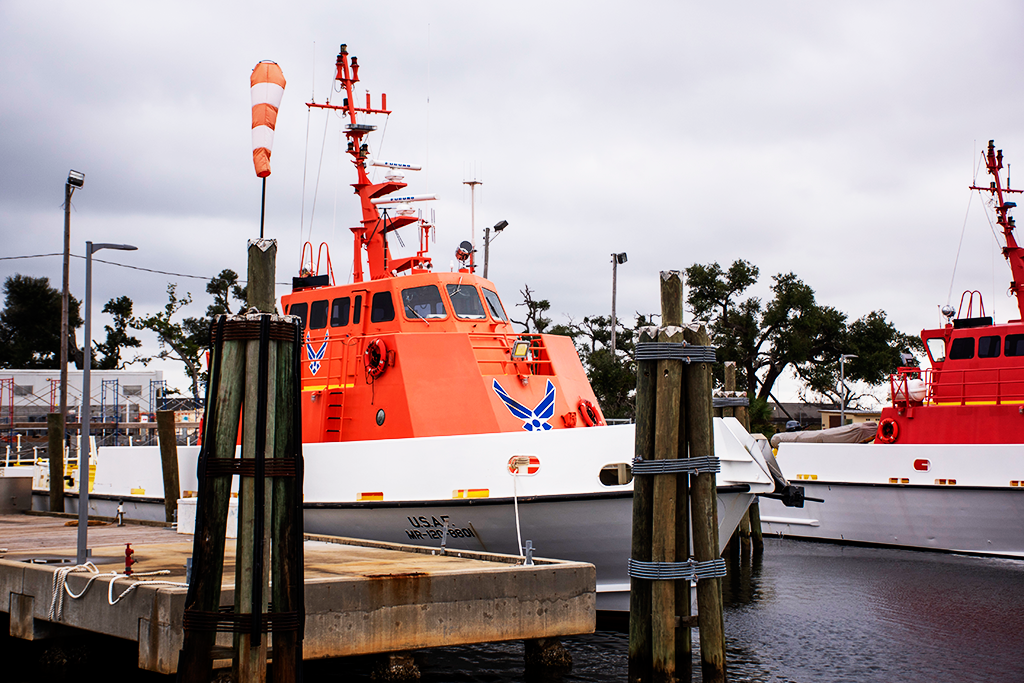New Federal Rule Threatens To Shut Down Four Florida Seaports
NOAA Wants to Hang 'Closed for Business' Signs at Ports Responsible for Over 40% of Florida's Fuel
Newly proposed rules by the National Oceanic Atmospheric Association (NOAA) pose a clear and present danger to Florida’s economy, its public safety and the security of our nation. These federal rules would impose the most restrictive regulations on navigable waters from Pensacola to Tampa Bay, resulting in a near shut down of essential food, fuel, medical supplies and cargo imports and exports at four of Florida’s most active Gulf of Mexico seaports.
NOAAs proposal calls for eliminating all nighttime vessel traffic, and significantly reducing daytime vessel speeds, impacting Port Tampa Bay, SeaPort Manatee, Port Panama City and Port of Pensacola. The rule, NOAA says, is designed to protect a newly discovered whale, with a population size of between 50-100 whales, that is known to traverse the entire Gulf of Mexico region, and is not just limited to Florida waters.
Implicit in the federal government’s call for eliminating nighttime vessel traffic and reducing daytime vessel speeds only in Florida between Pensacola and Tampa Bay, is an uninformed assertion that Florida’s seaports have limited operations and shutting them down would not harm the supply chain in Florida or the broader United States.
“Americans have not forgotten how the West Coast supply chain debacle of 2021 left shelves empty, medical supplies limited, and even threatened to cancel Christmas. Florida played an outsized role in resolving that crisis by encouraging ships to change lanes and sail to Florida seaports,” said Mike Rubin, president and CEO, Florida Ports Council. “Florida’s reliable and resilient seaports proved to the world that the Sunshine State was ready, and as a result, those shipping lines have made strategic decisions to make Florida a more permanent first port of call.”
Economic, Public Safety & National Security Impacts of the Proposed Rule

• Florida Seaports Saw Record-High Cargo in 2022
• 112.5 Million Tons of Cargo Moved
• 4,310,054 TEUs (Twenty-foot Equivalent Units) Moved
• Accounted for 13.3 percent of Florida’s GDP
• Supported 900,000 Jobs
• Contributed $117.6 Billion to Florida’s Economy


• Florida is not an oil refining state; therefore fuel/petrol is imported from two neighboring Gulf of Mexico port states – Louisiana and Texas.
• Of particular impact to the public safety of all Floridians, two of Florida’s four petrol seaports that import fuel – Port Tampa Bay and SeaPort Manatee – are located within NOAA’s proposed rule restriction zone.
• All four of Florida’s fuel ports play vital roles in keeping everything from airplanes to cars and commercial trucks used for delivering goods and supplies to grocery stores across Florida fueled.
• More importantly, in times of natural disaster, a nighttime ban on vessel traffic, combined with daytime vessel speed limitations will exacerbate Florida’s ability to recover from storms.


• All branches of our nation’s military use the Eastern Gulf Test and Training Range (GTTR) for national security training.
• The GTTR is a multi-service training area that supports simultaneous maritime, air and land training exercises. It is an integral part of the Department of Defense’s Training Resource Strategy.
• However, NOAAs proposed Vessel Slowdown Zone will restrict live fire munitions to a certain zone.
• The Defense Support Initiatives Committee has submitted comment to NOAA stating that, “…it is essential that no restriction be placed on Department of Defense or Homeland Security activities.”

FLORIDA SEAPORTS: YOUR U.S. GATEWAY TO THE WORLD
